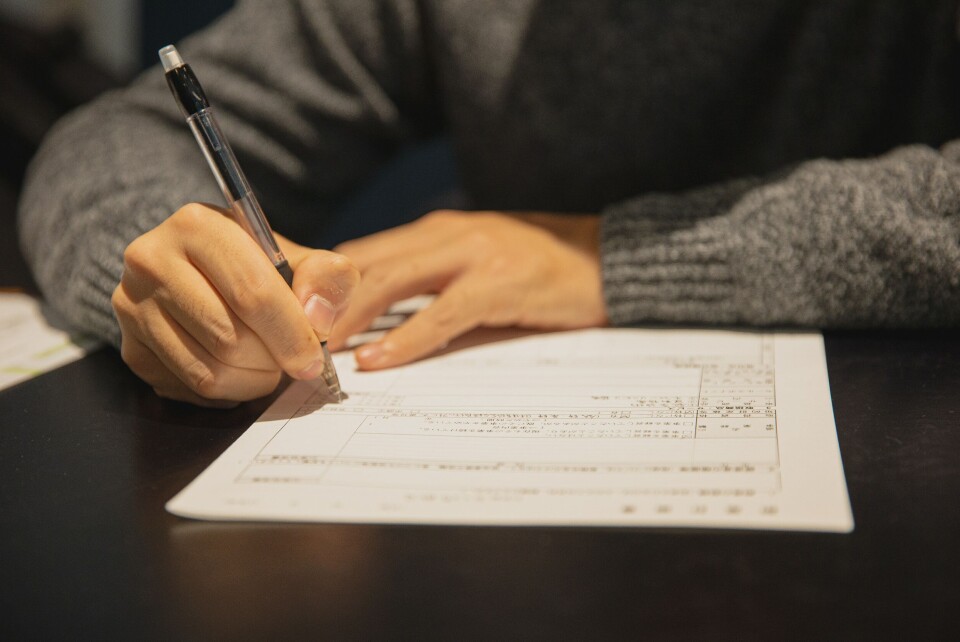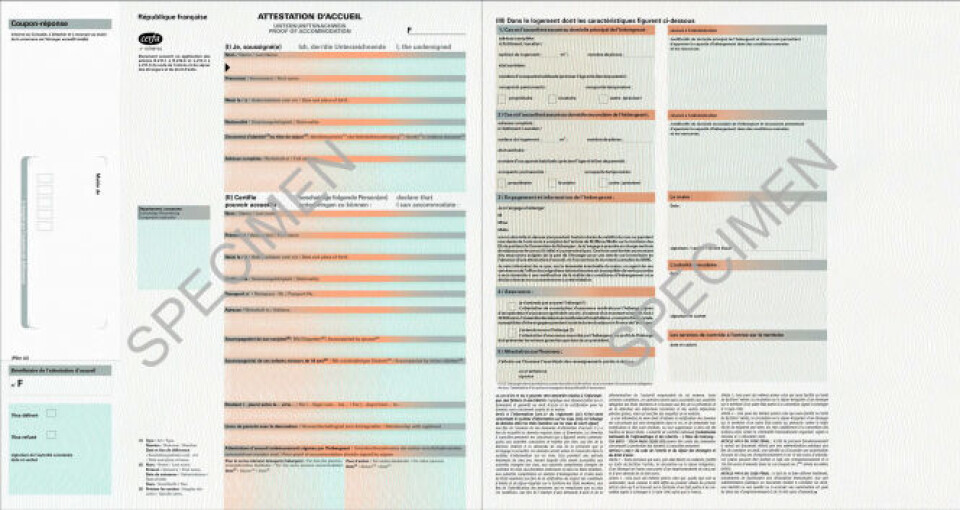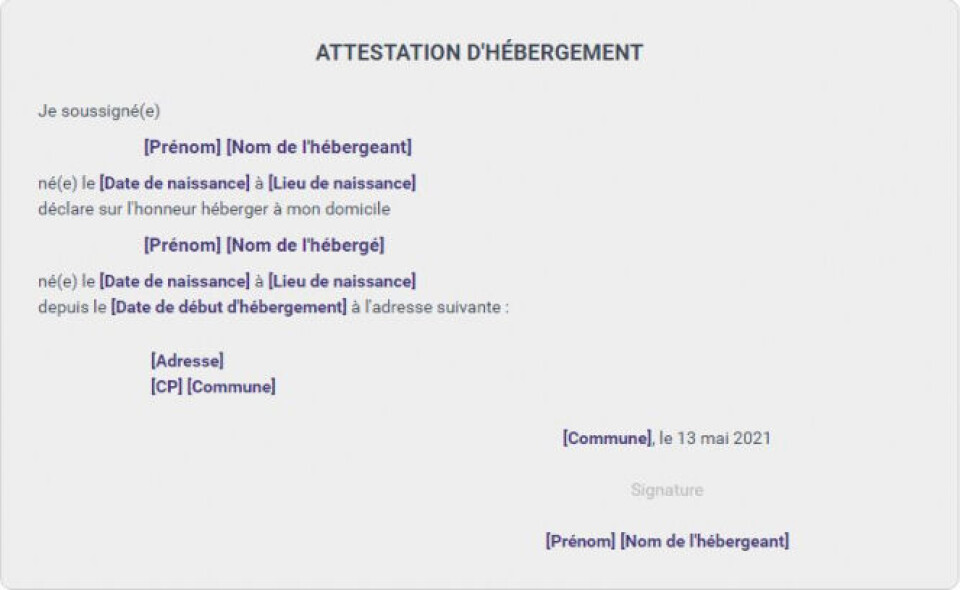-
New Paris-Jersey direct flight to launch this summer
Loganair route forms part of Channel Island’s tourism boost plan
-
Death of right-wing protester in Lyon sparks fears of further political violence
Quentin D, 23, died after reportedly being ambushed by far-left activists near site of political conference
-
Red flood alerts continue in south-west - and more heavy rain expected
Garonne river is particularly affected. French weekly weather forecast February 16 - 20
Attestation d'accueil and d’hébergement: what is the difference?
These two French administrative forms have similar names but serve different purposes. We explain

An attestation d'accueil is a certificate that non-EU citizens visiting friends and family in France may need for short trips. An attestation d’hébergement is a certificate to prove that you are living permanently at an address in France.
With the UK now out of the European Union, the question of whether Britons will be obliged to prove where they will be staying during a short holiday trip to France has been raised.
The French government website here explains that all non-EU short-term tourists who come to stay with family or friends, as opposed to in a hotel or other tourist accommodation, must have an attestation d’accueil.
However, The Connexion looked into this issue in its Brexit and beyond guide and found from a survey of readers, those who were asked for this form came from a country that requires a Schengen short-stay visa to visit France. This is not the case with the UK.
So, it is not likely that a UK national coming to France to stay with family or friends will be asked to show this document. However, people coming from countries that require Schengen short-stay visas to visit France are likely to need one.
You can read our in-depth article about attestations d’accueil here, including more on who could need one and in what situation, and how to get one.

Attestation d’hébergement
This is an official document that certifies that a person is living long-term and free-of-charge in another person’s property.
For example, if you are living at the home of a relative and not paying rent, you could get this document.
You need to have been living at the address for at least three months and not have a rental agreement.
It is used to provide the lodger with proof of residence when their name does not appear on utility bills or other official documents. It enables the lodger to carry out administrative processes in France, such as applying for a driving licence or opening a bank account.
The owner of the property can themselves draw up this attestation.
A model of the letter can be seen in the picture below.
You can also go to this French government site and use the attestation d’hébergement generator to create one.

You can find out more about attestations d’hébergement through this guide (in French).
























